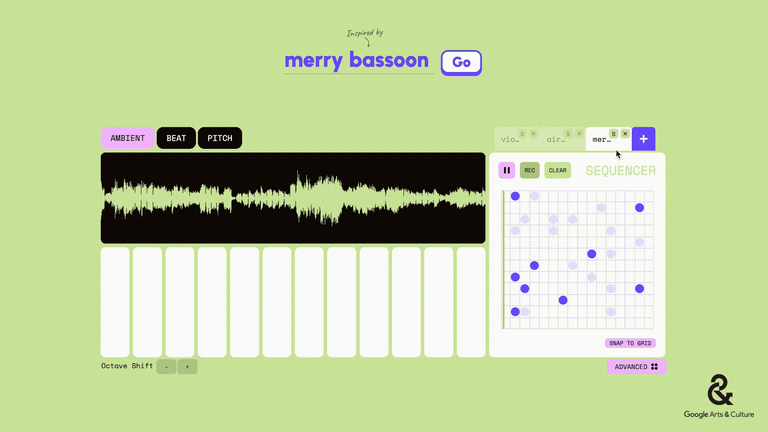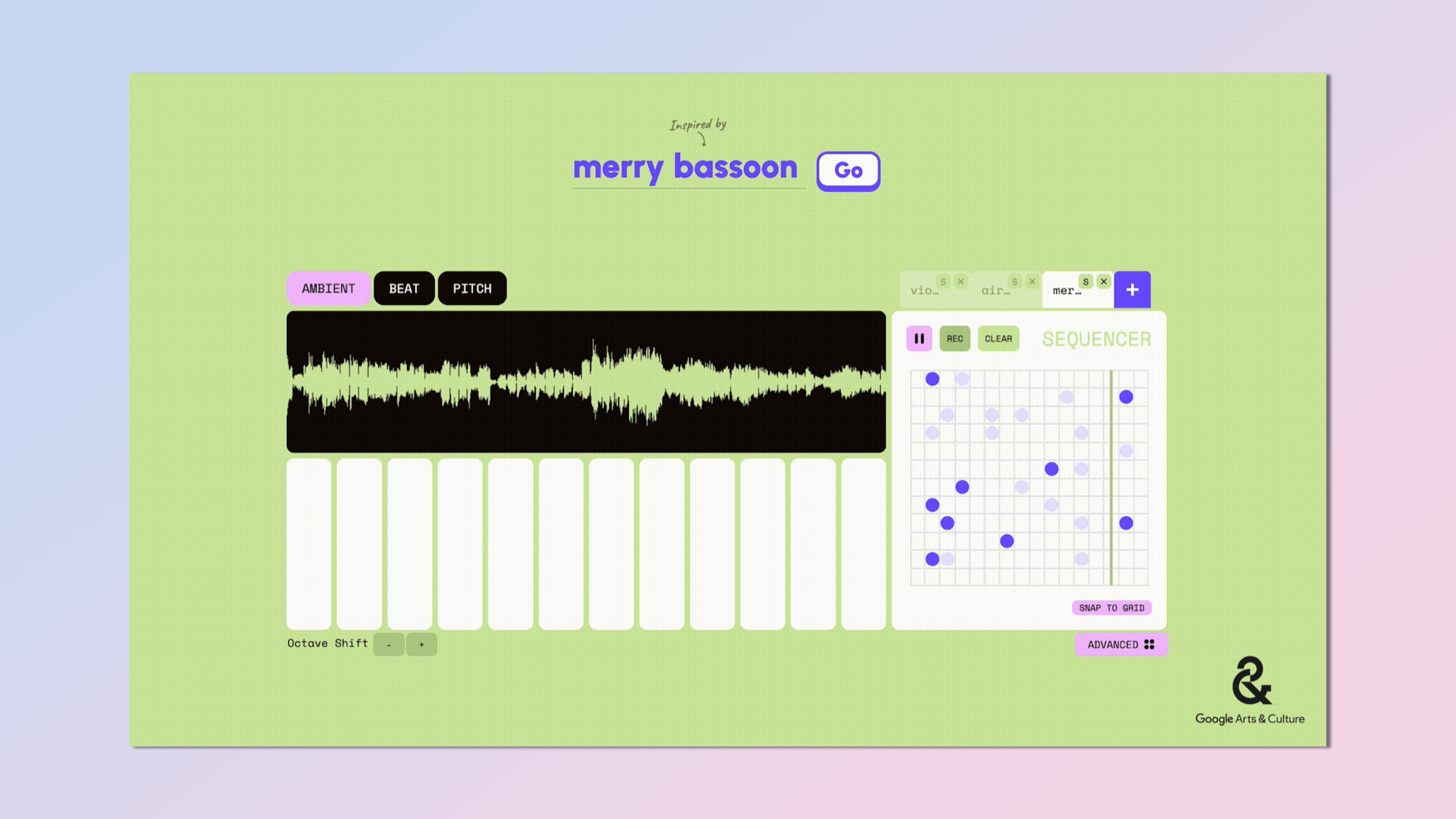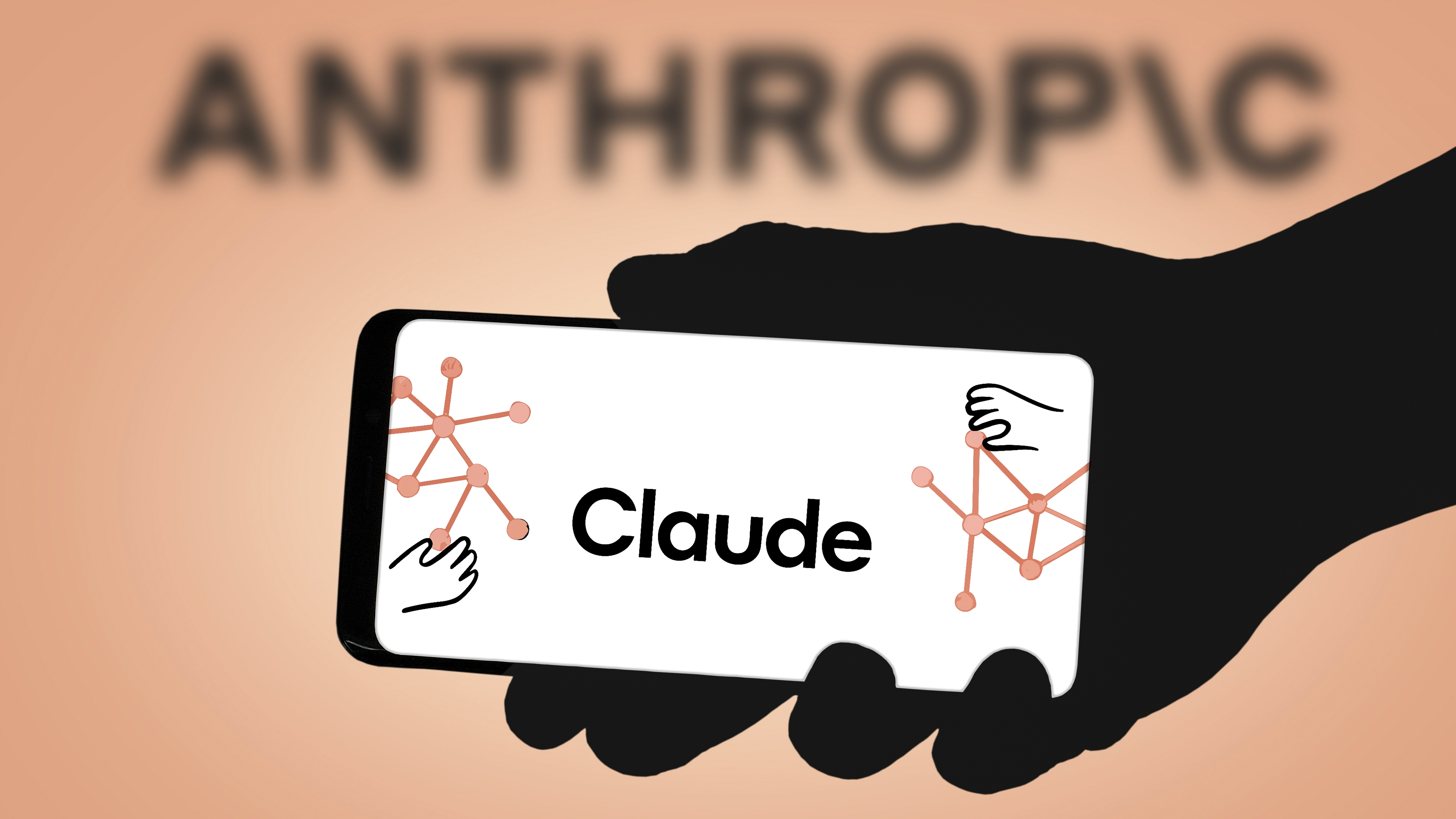Forget GarageBand — new Google AI tool lets you make music with any instrument you describe and I tried it
Making music one instrument at a time

Google’s Instrument Playground is an artificial intelligence-powered experiment that lets you describe an instrument and start playing with its sound in a matter of seconds.
Similar to synthesizers or some of the looping features of Apple’s GarageBand, the experiment gives you a virtual keyboard and maps a 20 second generated clip to the various keys using Google's MusicLM that also powers MusicFX.
AI music is a rapidly growing space, with tools like Suno able to create entire songs from a text prompt completely with vocals and lyrics, through to Rightsify Hydra II which is trained on fully licensed music and even gives you instrument stems.
Even Amazon through an Alexa skill and Adobe are working on AI music-related tools that do anything from simple song generation to full control over output.
How does Instrument Playground work?

MusicLM is an artificial intelligence model trained on music instrument samples and is built to turn text into music, trained in a similar way to AI image generators.
Similar to Suno, Meta's MusicGen or MusicFX, Instrument Playground can emulate hundreds of instruments from around the world, but unlike those tools it focuses specifically on manipulation of an instrument, similar to the way a synthesizer might work.
It starts by generating a 20 second clip using the instrument as a prompt. Once this has been generated you can use a keyboard (or the middle row letter keys on a laptop) to make a song.
Get instant access to breaking news, the hottest reviews, great deals and helpful tips.
First launched at the end of last year, the tool was built by Simon Doury, Google's Artist in residence. “A starting point for this experiment was exploring a playful interface based on Music LM that inspires creativity and discovery of instruments from around the world, for everyone,” said Doury.
The global nature of the instruments is among the most fun aspects of playing with the tool, particularly mixing two such instruments together.
How well does Instrument Playground work?
Instrument Playground is a bit tricky to get started as you’re working with a generated track. It doesn’t work like a piano as its synthesizing based on a song, not directly mapped notes to keys.
You could use some of the experiments with individual instruments in this tool over on the Google MusicFX experiment, to add those instruments into a complete, AI-made song.
I asked it to give me a spacy flute to work with and after a few moments it created a short clip of the flute playing a little ditty, and a keyboard to play around with the sound.
You can also enter advanced mode and add up to four different instruments, loop elements of each sound and create an entire track from AI generated samples.
Why is this a big deal
On the surface Google’s Instrument Playground is just that, a fun sandbox to play with AI. But under the hood is a powerful AI music model and, as we’ve seen with MusicFX DJ Mode, could one day lead to a new form of music production.
Imagine build able to come up with a new instrument that can’t exist in real life — a glass string piano that only plays in the vacuum of space — and being able to map it to a keyboard.
While there is controversy around data provenance for AI music tools, and concern over the impact anyone bing able to generate songs will have on the wider impact on the value of music — the reality is these tools will be best used by musicians to create something never heard before.
More from Tom's Guide
- WWDC 2024 dates announced — get ready for Apple’s biggest AI push ever with iOS 18
- I used AI to make a love song and music video
- Who needs a piano! Now Adobe lets you create music with AI

Ryan Morrison, a stalwart in the realm of tech journalism, possesses a sterling track record that spans over two decades, though he'd much rather let his insightful articles on AI and technology speak for him than engage in this self-aggrandising exercise. As the former AI Editor for Tom's Guide, Ryan wields his vast industry experience with a mix of scepticism and enthusiasm, unpacking the complexities of AI in a way that could almost make you forget about the impending robot takeover.
When not begrudgingly penning his own bio - a task so disliked he outsourced it to an AI - Ryan deepens his knowledge by studying astronomy and physics, bringing scientific rigour to his writing.
 Club Benefits
Club Benefits















